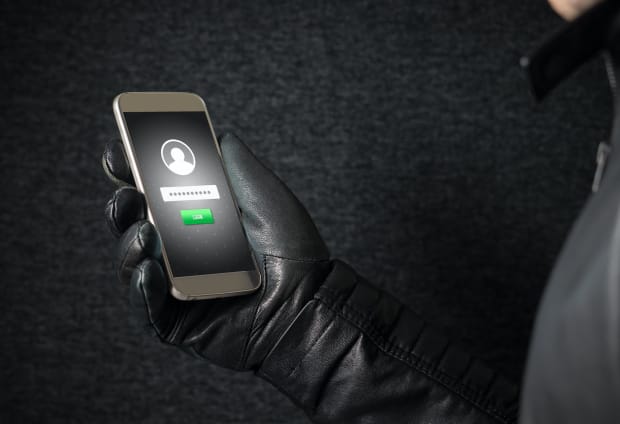
Tax season is already an unpleasant and much-dreaded time but, for many, it also carries a higher risk of getting scammed for hundreds or even thousands of dollars -- every year, fraudsters will try to take advantage of people's anxiety about receiving a letter from the IRS to get them to transfer money or give away sensitive information.
Common red flag phrases like "urgent" and "your account is at risk of being shut down" come up from year to year but, in 2023, there has been a rise in a new scam called "vishing."
Short for "voice phishing," vishing refers to impersonating someone else with the purposes of scamming by phone rather than text or email. Many use voice-alteration software while others simply repeat the same scam from thousands of fake phone numbers that are very difficult to track.
Here's What You Need To Know About Vishing
"An IRS-related vishing scam is where a caller, supposedly from the IRS, says there’s been some sort of legal action involving your social security number, and they’ll send agents to your home unless you provide money to correct it," John Wilson, the senior fellow of threat research at cybersecurity software provider Fortra, told TheStreet in an email.
In the weeks leading up to tax season, instances in which callers try to impersonate the IRS are going to increase. According to Wilson, one of the most important things one can do to protect oneself is to steer clear of any messages saying that something is "urgent."
As the real IRS will always give people time to make up late payments or clear up problems, someone calling multiple times in the same day is automatically suspicious -- one should wait to get the same information in another medium and never send money through something like Zelle or PayPal (PYPL) based on a single, unexpected call.

I Might Be Getting Vished. What Do I Do?
"Most users are afraid of penalties and fees from the IRS, so any users who call this phone number will be told that they owe money," Sunnyvale, Calif.-based data security company Proofpoint writes on its website. "The attacker convinces the targeted user to charge their credit card or to transfer money directly from the targeted user's account."
Along with enabling spam blockers and not picking up calls from suspicious numbers, other strategies to avoid getting scammed can be as simple as tapping an unknown number into Google (GOOGL) -- numerous user-created websites warn others about calls they've received.
According to Wilson, one should also report such complaints to the Federal Communications Commission and FBI's Internet Crime Complaint Center. While doing so with every call one receives can sometimes feel like screaming into the ether, a better repository of where these calls are coming from help authorities crack down on them.
One more thing to look out for is the presence of vishers impersonating tax preparers -- some call numbers offering to "help out" with taxes and disappear as soon as the victim transfers over a sum for a deposit.
"Even though most tax return preparers provide honest, quality service, some may cause harm through fraud, identity theft and other scams," the IRS said in a warning issued on January 24. "When hiring an individual or firm to prepare a tax return, filers need to understand who they're choosing and what important questions to ask."







